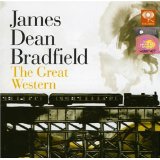 Just in case anyone hadn’t realised, I’ve loved the Manics almost from day one. From the first time I heard “Slash ‘n’ Burn”, I was hooked and I’ve never heard anything since that came remotely close to unhooking me. I loved the Richey-period Manics because of Richey’s lyrics and James’s voice, playing and ability to write a memorable tune and I didn’t skip a beat when Nicky Wire took over as main lyricist for the band. He’s a gifted writer and he has an opinion or two; I like that.
Just in case anyone hadn’t realised, I’ve loved the Manics almost from day one. From the first time I heard “Slash ‘n’ Burn”, I was hooked and I’ve never heard anything since that came remotely close to unhooking me. I loved the Richey-period Manics because of Richey’s lyrics and James’s voice, playing and ability to write a memorable tune and I didn’t skip a beat when Nicky Wire took over as main lyricist for the band. He’s a gifted writer and he has an opinion or two; I like that.
So, in 2006, when James Dean Bradfield released his solo album “The Great Western”, I couldn’t wait to get my hands on a copy. I loved it the album the first time I listened to it and I still love it every time I listen to it. The highest chart position it reached (with minimal promotion) was 22, and that puts it firmly in Closet Classic territory. Oh, and my favourite mondegreen is on this album, but I’ll tell you about that later.
So why would a songwriter in a commercially successfully and critically-acclaimed band want to release a solo album? Well, the Manics have always been big on the manifesto songs but, with a few exceptions (including “Life Becoming a Landslide” and “Ocean Spray”), they’ve not really done the personal, apolitical and introspective thing. If you’re a songwriter as prolific as James, you’re always going to have a bunch of great songs that just won’t work on any band album. When you listen to “The Great Western”, you realise that it would be criminal not to get these songs out there.
I love an album that opens with a big guitar riff and “The Great Western” certainly ticks that box; throw in some handclaps as well on the intro to “That’s No Way to Tell a Lie” and you’ve got my attention from the first four bars (it was even used on “Match of the Day”, so full marks to that BBC researcher). The production on the album is generally Spectoresque wall-of-sound, with the exception of the beautiful minimalist acoustic Jacques Brel cover “To See a Friend in Tears” and the final song “Which Way to Kyffin” which references Laurie Anderson’s “O Superman”, and James has great fun with all of the melodic invention, layers of acoustic and electric guitars and completely over-the-top backing vocals that you would never hear on a Manics record (ok, maybe on “Everything Must Go”).
Lyrically, the album generally looks backwards to the early days of the Manics, life in the valleys in the 1980s and moving away from that life. “An English Gentleman” is a tribute to the band’s first publicist, Philip Hall, “Say Hello to The Pope” and “Bad Boys and Painkillers” (the only song on the album co-written with Nicky Wire) look back to life in Blackwood, and “Emigré” deals with the conflict created by leaving your roots to pursue your dreams. “Still a Long Way to Go” sounds a lot like a prequel to the highly personal “Ocean Spray” and “Run Romeo Run” has a chorus to rival anything that made it on to a Manics record.
Anyone with a pair of ears knows that James Dean Bradfield can write a great tune (and you can ask Shirley Bassey about that) but “The Great Western” proves that he’s a gifted lyricist and a talented producer as well. Seven years after I bought this album, I still love to listen to it and I’m convinced that James had a huge amount of fun putting the whole thing together. I suspect it was bought almost exclusively by Manics fans and that’s a bit of a shame really because this is a superb bunch of songs and it’s eclectic, well-crafted, well-performed and well-produced.
And what about that mondegreen? After hearing “On Saturday Morning We will Rule the World” many, many times I was still confused by a line that I heard as “A book of Brie and a telephone” until I finally realised that it was “A Ford Capri and a telephone”, which is ironic given that I’ve spent the last ten years living as an emigré a couple of miles from the old Ford complex in Dagenham.
Even if you’re not a fan of the Manic Street Preachers, put your prejudices to one side and listen to an album that absolutely fizzes with emotion and musical and lyrical invention. What more could you possibly want?


